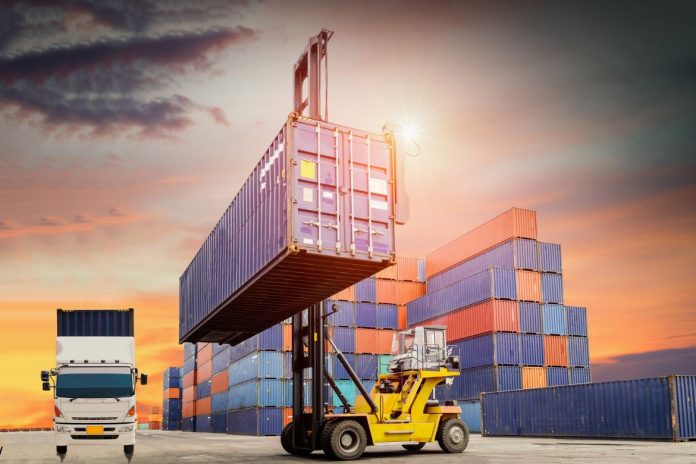Singapore’s logistics industry is a critical component of its economy, playing a pivotal role in supporting the country’s position as a global trade hub. Given Singapore’s strategic location at the crossroads of major shipping routes, its well-developed infrastructure, and its pro-business environment, the logistics sector has flourished, making it one of the most advanced in the world.
Overview of Singapore’s Logistics Industry
- Strategic Location:
- Singapore’s location at the southern tip of the Malay Peninsula places it along the major East-West shipping routes, making it an ideal gateway for global trade. The Port of Singapore is one of the busiest in the world, handling a substantial share of the world’s container transshipment traffic.
- Advanced Infrastructure:
- Singapore boasts world-class infrastructure that supports its logistics sector. The Port of Singapore is renowned for its efficiency, handling more than 37 million TEUs (twenty-foot equivalent units) of containers annually. Additionally, Changi Airport is a leading air cargo hub in Asia, handling millions of tonnes of air freight each year.
- Integrated Logistics Hub:
- Singapore has developed as an integrated logistics hub, providing a range of services, including warehousing, distribution, and supply chain management. The city-state is home to numerous multinational logistics companies, as well as local firms that offer specialized logistics solutions.
- Technology and Innovation:
- The logistics industry in Singapore is increasingly adopting advanced technologies to enhance efficiency and reduce costs. Technologies such as automation, robotics, artificial intelligence (AI), and blockchain are being implemented to streamline operations, improve accuracy, and provide real-time visibility across supply chains.
- Government Support:
- The Singapore government actively supports the logistics industry through various initiatives, including the Logistics Industry Transformation Map (ITM). This plan aims to strengthen the industry’s competitiveness by encouraging innovation, upskilling the workforce, and improving operational efficiency.
Key Components of the Logistics Industry
- Maritime Logistics:
- The maritime sector is the cornerstone of Singapore’s logistics industry. The Port of Singapore is not only a major container port but also a leading hub for oil, gas, and chemical transshipment. The port’s strategic importance is bolstered by Singapore’s free trade agreements (FTAs) with numerous countries, facilitating the seamless movement of goods.
- Air Cargo:
- Changi Airport plays a crucial role in Singapore’s logistics ecosystem, particularly for high-value and time-sensitive goods such as electronics, pharmaceuticals, and perishables. The airport’s connectivity to major global markets, combined with its efficient cargo handling facilities, makes it a preferred air cargo hub in the Asia-Pacific region.
- Land Transportation:
- While Singapore is a small city-state, its road and rail infrastructure is crucial for connecting ports and airports with industrial zones and distribution centers. Land transport services also play a key role in the cross-border movement of goods between Singapore and Malaysia.
- Warehousing and Distribution:
- Singapore’s warehousing sector is highly developed, with state-of-the-art facilities that include temperature-controlled storage, automated retrieval systems, and integrated IT solutions. These facilities support the efficient distribution of goods both domestically and internationally.
- Third-Party Logistics (3PL) Providers:
- The presence of numerous 3PL providers in Singapore offers businesses end-to-end logistics solutions, including inventory management, order fulfillment, transportation, and distribution. These providers cater to a wide range of industries, from electronics and chemicals to retail and e-commerce.
Challenges and Opportunities
- Challenges:
- Rising Costs: Singapore’s high cost of land, labor, and operations poses a challenge for the logistics industry, particularly in maintaining cost competitiveness against regional players.
- Labor Shortages: The logistics sector faces challenges in attracting and retaining skilled labor, especially as the industry becomes more technologically advanced.
- Global Trade Uncertainties: Fluctuations in global trade, driven by geopolitical tensions and economic uncertainties, can impact the demand for logistics services in Singapore.
- Opportunities:
- Digital Transformation: The push towards digitalization presents significant opportunities for the logistics industry. The adoption of technologies like IoT, AI, and big data can enhance supply chain visibility, improve efficiency, and reduce costs.
- Sustainability: There is a growing focus on sustainability in logistics, driven by both regulatory requirements and consumer demand. Singapore is investing in green logistics solutions, such as electric vehicles, energy-efficient warehouses, and sustainable packaging.
- E-commerce Growth: The rapid growth of e-commerce in Asia presents a major opportunity for Singapore’s logistics industry. The demand for efficient, fast, and reliable delivery services is driving the expansion of last-mile logistics and cross-border e-commerce solutions.
Future Outlook
The future of Singapore’s logistics industry is bright, underpinned by ongoing investments in infrastructure, technology, and human capital. The government’s continued support through initiatives like the Smart Nation plan and the Logistics ITM will be crucial in ensuring the industry’s continued competitiveness.
Moreover, Singapore’s strategic position as a key node in global supply chains will remain an asset, particularly as trade within the Asia-Pacific region continues to grow. The ongoing expansion of the Tuas Megaport and enhancements at Changi Airport will further solidify Singapore’s status as a global logistics hub.
In conclusion, while the logistics industry in Singapore faces challenges such as rising costs and labor shortages, it is well-positioned to capitalize on opportunities in digital transformation, sustainability, and e-commerce. As global trade patterns evolve, Singapore’s logistics sector will continue to play a vital role in facilitating the movement of goods and supporting economic growth both regionally and globally.








